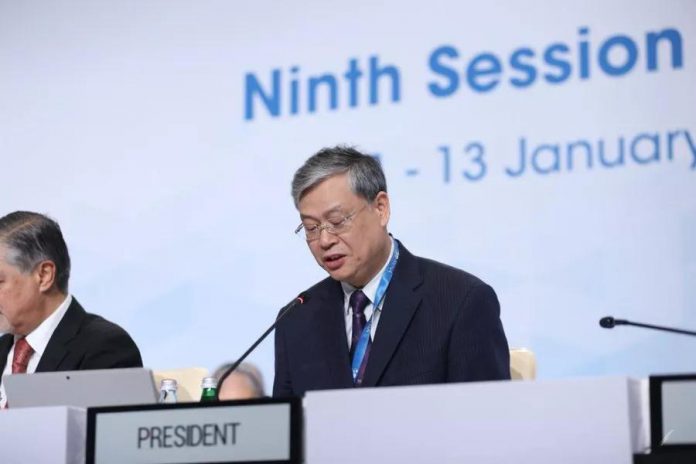Under the background of declining costs and increasing social and economic benefits of renewable energy, the Conference has received considerable attention.
On January 11, Adnan z. Amin, Secretary-General of IRENA, reported, “As technology cost falls, the large-scale commercialization of renewable energy has become a major driver of energy transformation, and such a sharp drop in costs amazes the most optimistic persons.” He also said, “The average cost of solar PV has decreased 73% since 2010. In the best locations of countries such as Chile, Saudi Arabia, India and the United States, the cost per kilowatt can reach 3 cents. Regarding addressing environmental pollution and climate change, the most cost-effective way to reduce emissions by 90% is to deploy renewable energy and improve energy efficiency. To date, 57 countries have expressed to achieve complete decarbonization of their national power and 179 countries have set renewable energy development targets at national and local levels.”

▲Adnan z. Amin, Director-General of IRENA
Li Fanrong, Chairman of the Conference and Deputy Director of NEA, said, “Renewable energy has been explicitly listed as one of China’s strategic priorities. This not only serves our economic and environmental goals, but also enhances China’s contribution to global key goals. We have received the strong support of IRENA and other international cooperation agencies during the process. In the future, China will continue to work with IRENA to promote renewable energy, enabling it to be the major future source of energy.”

▲Scene of the Ninth Session IRENA Conference
Li Fanrong also said, “The IRENA Conference has become an important opportunity to unite the global community. The discussions in the coming days will undoubtedly provide effective advice and guidance for various countries to promote renewable energy growth.”
A report entitled “A New World” was released at the Conference on January 11. It indicates that the energy transformation will change our understanding of national energy strategies. Renewable energy will enhance energy security in most countries and make them more energy independent. The new patterns of interdependence and trade will emerge as countries focus on the development of renewable energy and more and more power grids are integrated between neighboring countries. The analysis suggests that the strategic importance of some marine strongholds will decline in the future as oil and gas-induced conflicts may decline.


Among them, 3.365 million jobs were created in the PV industry
The report also notes that the energy transformation will also create new energy leaders and that the heavy investment in renewable energy technology will enhance some countries’ impact. China is the first to become the world’s largest producer, exporter and installer of solar panels, wind turbines, cells and electric vehicles in the current renewable energy race and thereby raises its geopolitical status. If fossil energy exporters fail to adapt their economy to the renewable energy era, their global influence will decline.






